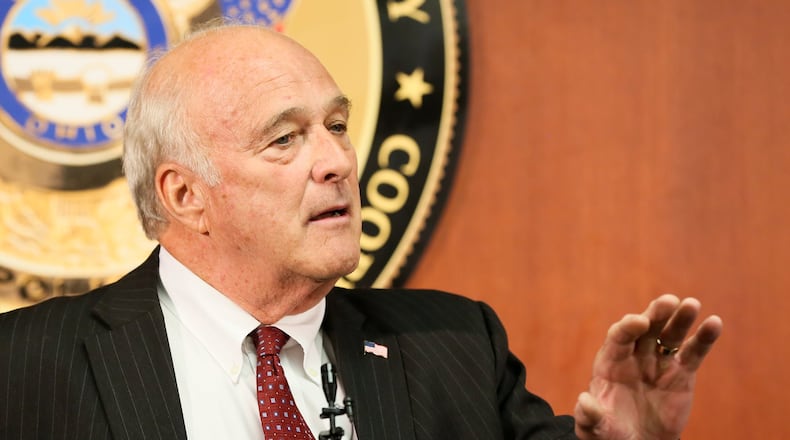Heck’s decision was praised by some other county prosecutors, the head of a state association of prosecuting attorneys and Ohio Attorney General Dave Yost, who said they hope other prosecutors follow in his footsteps.
But some other prosecutors, including Michael Gmoser of Butler County, say they do not think a statewide policy change is necessary or appropriate because they are independent from local law enforcement agencies and are accountable for their decisions via elections.
Gmoser said the people of Butler County voted to hire him to do this job, and what’s being proposed suggests he and other prosecuting attorneys are not qualified and capable of making decisions without favoritism and bias.
Gmoser said every case of an officer-involved homicide goes to the Butler County grand jury, which is a policy he adopted after coming into the office in 2012.
Gmoser said he personally handles these cases and will personally prosecute any police officer who is indicted, which means his assistant attorneys who work most with the police agencies aren’t affected.
“I do not consider favorites in any respect in anything that I do,” he said.
A policy change
In late July, Heck notified local law enforcement agencies that his office no longer will handle officer-involved shootings in the county.
Moving forward, his office will appoint special prosecutors to these cases, with a stated goal of improving public perception of justice. An office spokesperson said Heck already has assigned four officer-involved cases that were under investigation or review to special prosecutors from other counties.
Montgomery County is home to about 30 police agencies. Two of the largest, the Dayton Police Department and the Montgomery County Sheriff’s Office, have had 11 and three officer-involved shootings since 2018, respectively, according to their data.
Heck’s decision is the right call and is in line with a June vote by the executive committee of the Ohio Prosecuting Attorneys Association, said Louis Tobin, the association’s executive director.
The committee voted to support state efforts to require outside prosecutors to review lethal use-of-force cases involving police, he said.
“Our decision was about public trust in the process,” he said. “It is our sincere hope that review by an outside prosecutor in these cases will help build confidence in our criminal justice system.”
Changing perceptions
Yost said it’s hard to seem impartial and fair when it looks like law enforcement is investigating itself.
“I am for having a statute that requires an independent investigation of a lethal, officer-involved use-of-force,” Yost told this newspaper. “It’s not that I distrust the investigators ― it’s that we need to have the buy-in and trust of the communities we serve.”
Yost commended Heck’s decision to relinquish review of these cases, saying Heck is doing what he can within current law to create a more trustworthy process.
But Yost said prosecutors should not be in charge of deciding who to appoint to these cases, because potentially they could steer them to other attorneys with whom they have a close relationship.
“When a judge recuses them self from a case, the judge doesn’t get to decide who the new judge is ― the Supreme Court appoints somebody to do it,” Yost said.
Yost said he’d like a similar kind of independent decision-maker for selecting outside prosecutors.
Possibly there could be a rotating list of prosecuting attorneys who are randomly assigned police lethal use-of-force cases, Yost said, or possibly an outside body or the governor could make special appointments.
About the Author

